Hitman: Absolution is an intense mix of serenity and obscenity, its foul-mouthed criminals and grubby henchmen adding a layer of thick grime to otherwise quaint small-town streets and warm desert sands. Returning antihero Agent 47 is a ruthless contrast to both the beauty of his surroundings and the foul crooks he butts heads with; he's a steadfast and well-dressed killer who finds pleasure in careful planning and clean kills. Once again, he dons his brightly buffed shoes and exercises a combination of stealthy maneuvering and brute force to end the lives of those most deserving of their demises. Not every method of murder is as satisfying as you'd want, but Absolution plays well and looks sumptuous.
More intriguingly, it fills its world with such disgusting wastes of space that you're happy to lodge bullets in their heads. The best missions immerse you in Hitman: Absolution's twisted look at Americana and are teeming with contemptible characters drawn from the bottom of the cultural barrel. You may even find 47's initial actions hard to witness: his first contract is to assassinate his former handler at The Agency, Diana Burnwood, who has apparently gone rogue. Her last wish as you watch her perish by your own hand: that you protect a girl named Victoria and, in turn, be branded as a traitor.
The primary villain is a snarling crime lord with a big cowboy hat and a down-home drawl named Blake Dexter. Every rank word that oozes out of this snake charmer's mouth is pure poison, though the human stains that assist him strive to outdo his obnoxiousness at every turn. The crudeness can become overbearing; one target's dying observations are so crass that it's hard to imagine that even the most dirty-minded players would snicker at them. Elsewhere, you encounter a team of assassins called The Saints: women dressed as sexy nuns for no obvious reason other than, well, that's just what they do. In such cases, you get the sense that the game is trying too hard to be edgy. Other events and characterizations are more successful, often because they're steeped in dark humor--such as a hysterically memorable moment involving you, a food delivery man, and an elevator.
This sequel embraces the mechanics of previous Hitman games in the ways that matter most. You enter a level with an objective--generally, to off a mission-critical hooligan--and you can accomplish it in any number of ways. The most satisfying and challenging method is to sneak about, crouching behind cover to avoid being spotted, choking enemies from behind with your garrote, or diverting their attention by throwing a brick or some other object. As in most stealth games, you want to remove any bodies you leave behind, lest your victim's cronies come sniffing around (and they most definitely will). Usually, that means dragging the corpse to a bin or wardrobe and dumping it inside.
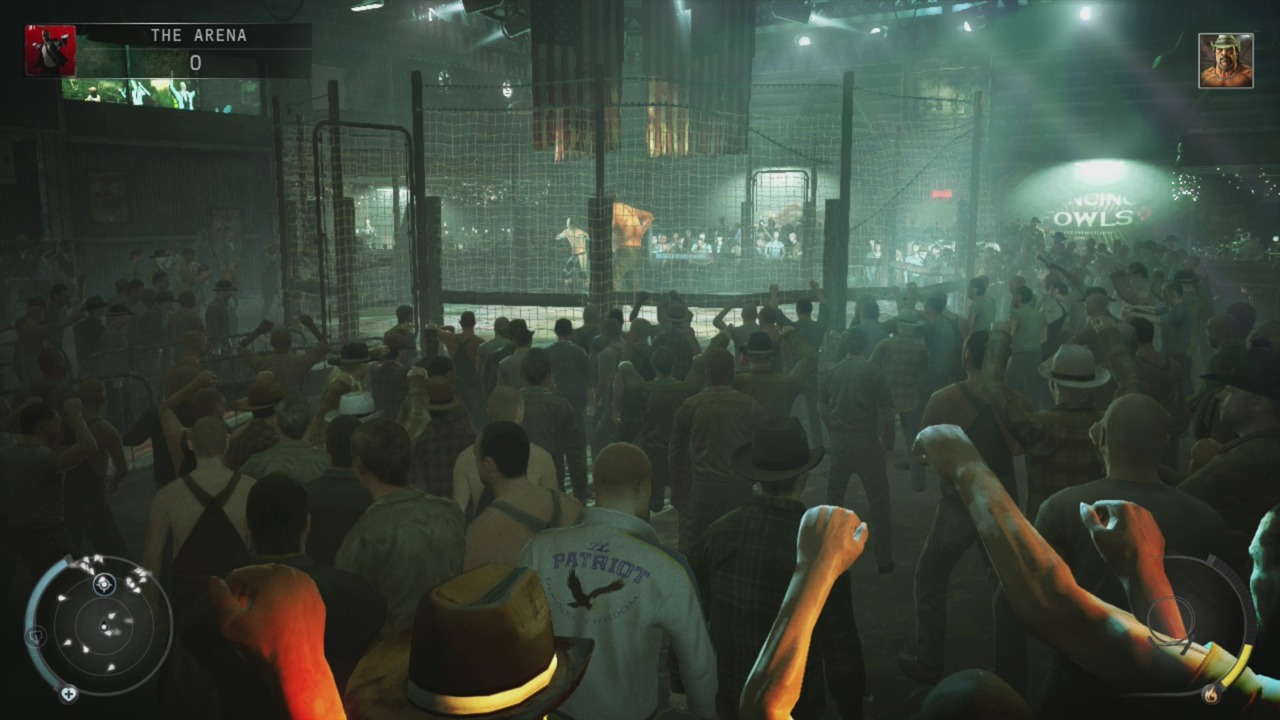
All sorts of objects are scattered around for you to use, beyond distraction items like bricks and screwdrivers. You come across gasoline canisters (shoot them for a nice big boom), proximity mines (place them just right and your target explodes into bits while you watch from the sidelines), microscopes (hide in plain sight by pretending you're a scientist), and so forth. Of course, the distinctive-looking 47 wouldn't pass as a scientist in his smoothly pressed suit, so you should probably look the part by punching out a researcher, donning his clothes, and throwing him in a closet.
And so you move through each environment, poking around to see what tools the level might offer for the quietest kill--or the most dramatic, or even the sloppiest. There is great satisfaction in coming across a sniper rifle and landing a sequence of headshots from a window above a crowd, particularly given how you can steady your aim by gently squeezing the trigger before fully depressing it and firing your shot. You might clear out the majority of the level this way, but as you slink toward your destination, you notice all these baubles that you missed, all those lost chances to distract guards by triggering car alarms, all those disguises you never wore. Those lost opportunities, the chances to improve your score by treading even more carefully, and the game's built-in sub-challenges (wear every possible disguise; don't wear any disguise) inspire multiple replays.
On the default difficulty, getting caught doesn't have to be a big deal. 47 can take a lot of damage, and he can use a number of weapons to help him out of a jam. You come across pistols, machine guns, shotguns, and so forth: all the tools of the killing trade. You approach the action as you would in a cover shooter, crouching behind obstacles or pressing against pillars, and then popping out to fire a few shots. You won't be running and gunning, though it is possible to be overwhelmed by sheer numbers if you're particularly careless. Should this happen, you can perform point shooting, which allows you to slow down time, mark your victims, and then fire a succession of bullets with a single button press.
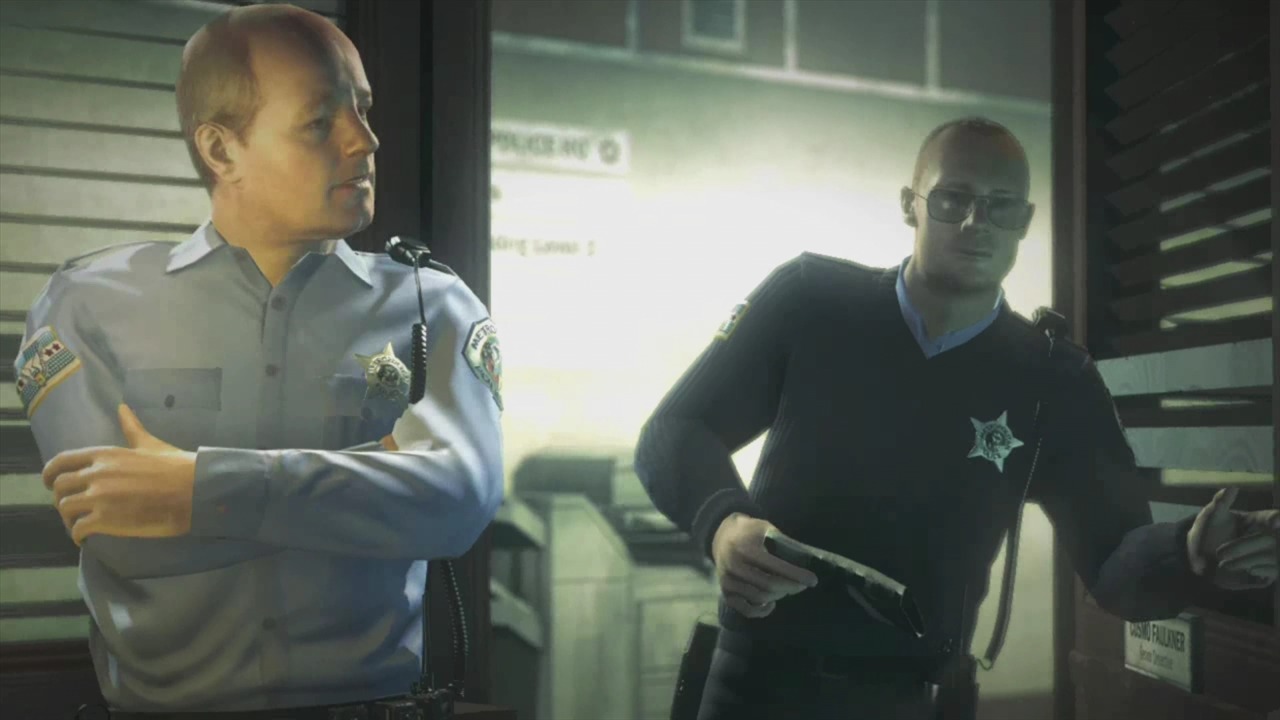
Point shooting is visually stimulating. The camera closes in on the victim, and you watch his head thrust backward from the impact of the bullet in slow motion. In the soundtrack, rising dissonant chords underscore the violence, the music culminates in a cry from the trumpets, and the phrase comes to a rest on a single, unison drone. If only the standard shooting had substance to accompany that style. Your enemies aren't very smart once they get to shooting a gun. Sometimes they continue to fire at the spot where they believe you to still be, even once you have moved out of the way. But all too often, they just waste countless rounds trying to shoot through doors when they have no line of sight, run directly past you toward some cover location on the other side of the room, or pay no attention when you snipe the guy standing right next to them. This doltish behavior takes the bite out of the direct approach--as does the occasional sight of a limb or gun barrel clipping through a wall.
An instinct meter governs when you can perform your stylish slo-mo point shots, and how much time you have to designate your targets. On medium difficulty, you gradually gain instinct as you play, though higher difficulties adjust the specifics--or eliminate the mechanic entirely. Instinct also allows you to scan your surroundings and pinpoint enemy locations, interactive objects, and points of interest. What with point shots, instinct, and tepid AI, Hitman: Absolution isn't as challenging as its predecessors on standard difficulty. If you're a series veteran, you should try the more challenging difficulty levels straight away, as they provide substantially more rewarding victories for hardened assassins.
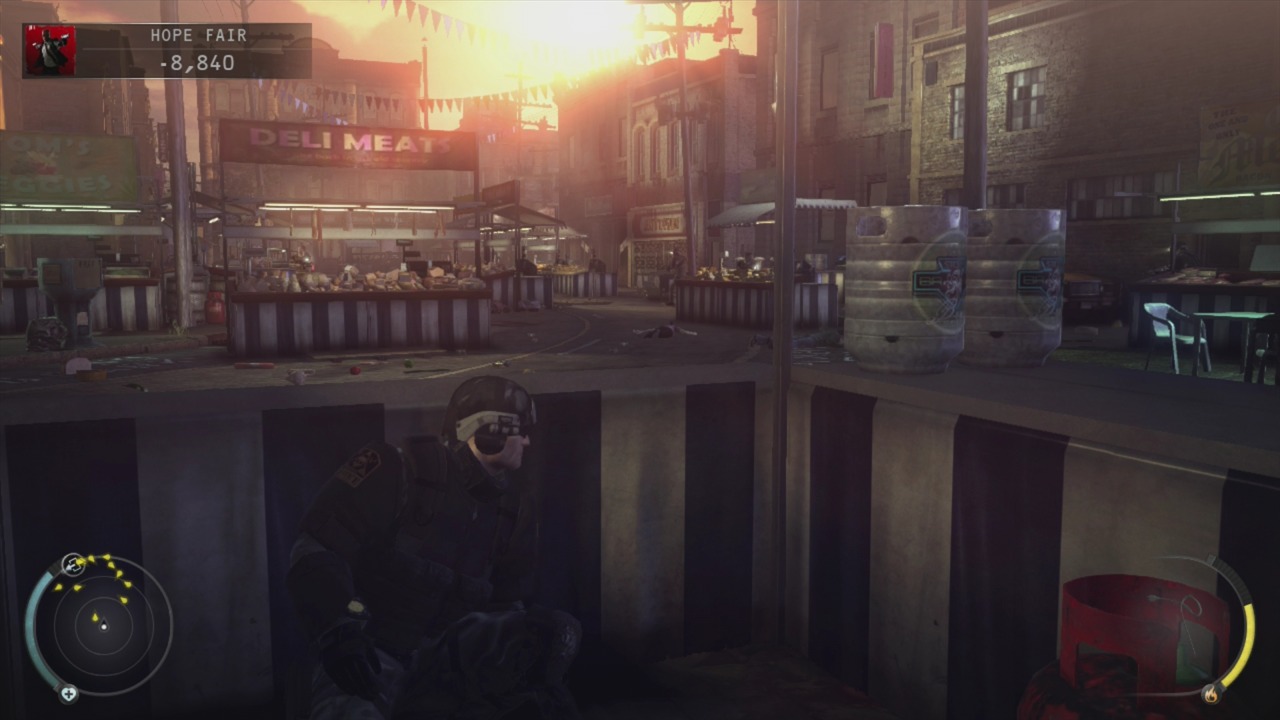
47 can get even more personal with his victims, clobbering them in a quick-time button event that aims for some of the time-bending style of point shots. Melee combat with your strongest enemies can take long enough to play out that you'll want to be out of earshot of nearby guards, lest they start shooting while you're otherwise engaged. The button prompts during these events are occasional problems, because prompts are located on the victim's body rather than on the center of the screen. Integrating the button icons into the action this way was a smart idea, but prompts can sometimes be out of camera view, or hidden by an interface element. Fortunately, such scuffles are easily won, so this issue is only a minor nuisance.
What a vivid world it is that these characters are constantly soiling. A visit to a druggies' haven bursts with psychedelic colors; beaded doors flutter as you walk through them, and a bathroom's deep blue lights and sparkled walls usher you into the New Age. Here, you slink through a crop of shoulder-high marijuana plants during a police raid. In another instance, you step through huge throngs of fight fans as you seek a way to annihilate the hulking combatant in the ring. But even the more pedestrian environments--mine shafts, a train platform, a vehicle repair shop--are strikingly detailed. Lighting of different hues shines across surfaces and on people's faces, which creates a rich and heightened reality.
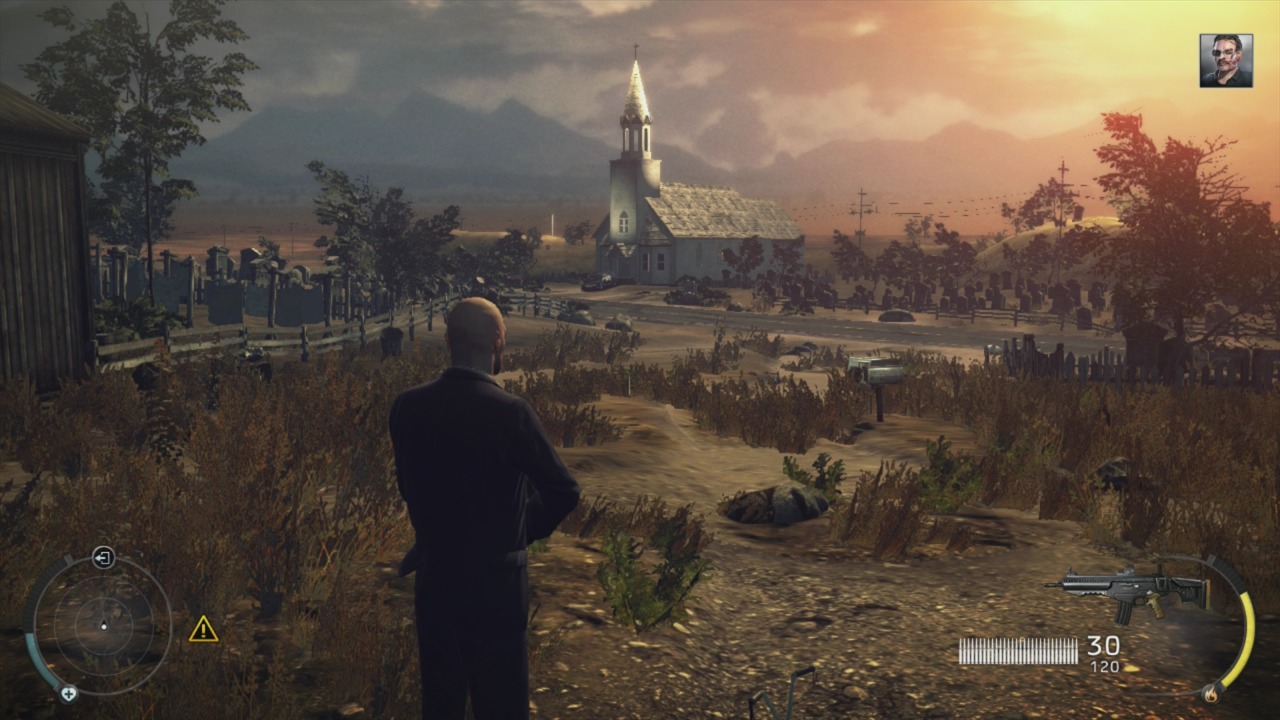
The shallow cell phone conversations and offhand comments you overhear are believable, making it easy to lose yourself in the world. But Hitman: Absolution's excellent sound design digs even deeper than those eavesdropped details. The voice cast has not a sour note in the bunch; every obscenity is hurled with enough contemptuous force to match the vibrant sleaziness of the visuals. Great voice acting is backed by great sound effects, highlighted by the various whooshes and hums that communicate your enemies' state of awareness. The whirs and whines of point shooting are also noteworthy, amplifying the tension of the depleting instinct meter.
These environments are host to Hitman: Absolution's best missions, which give you the greatest leeway to proceed as you wish. But they also house some of the game's head-scratching design choices, which abandon the element of choice and force you into a single solution. Several key assassinations remove your freedom and arbitrarily usher you into slow-motion point shooting. These are short and disappointing moments, requiring no skill and providing no tension--and thus diminishing any sense of payoff. A few other levels have you escaping from a burning building and avoiding helicopter fire. These scenes have the cinematic style of so many modern big-budget games, but they shine the spotlight on the game's ledge-walking and cover-to-cover tumbling, which function fine but don't have the fluidity of similar mechanics in games such as Deus Ex: Human Revolution and Tom Clancy's Splinter Cell: Conviction.
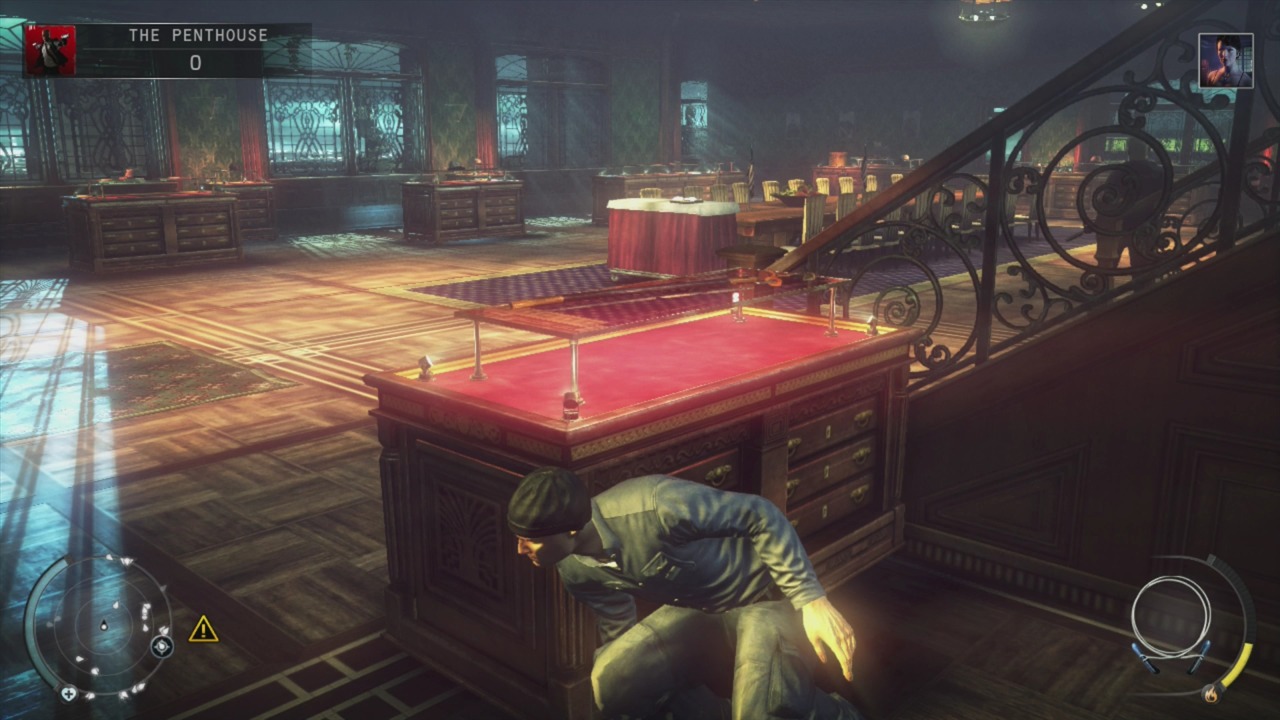
You could get through Hitman: Absolution's campaign in ten hours, more or less, depending on how you play, and various challenges, unlocks, and assassination methods invite return visits. But there's another way to play these missions: through player-created contracts. In this mode, you can compete with other players for high scores by seeing who can finish missions most efficiently and stylishly. To create a contract, you simply play a mission, designating up to three targets and then assassinating them in whichever way you wish, and in whichever disguise you prefer. Once the contract is created, other players can show off their skills--which in turn might inspire you to create more difficult, more intricate contracts. Creating a contract is simple, and it's a neat way to make old missions feel fresh.
Even if you have no interest in contracts, however, Hitman: Absolution's campaign is fulfilling on its own. There are some stumbles here and there--in the AI, in the mission design, and elsewhere. The story, too, hobbles a bit at the end, leaving some narrative gaps that needed filling in. But one thing's for sure: it's good to have Agent 47 back, and he was clearly needed. The greasy world he inhabits was in sore need of cleansing, and it's a pleasure to have so many ways of scraping the human grime off its surface and discarding it like the trash it is.